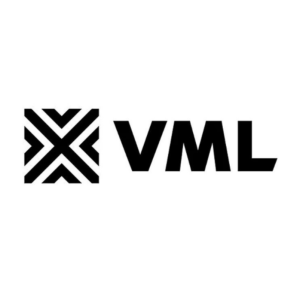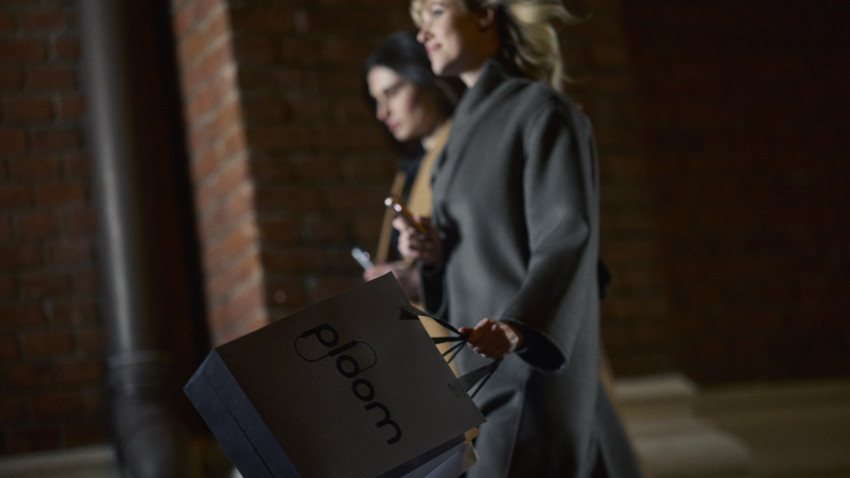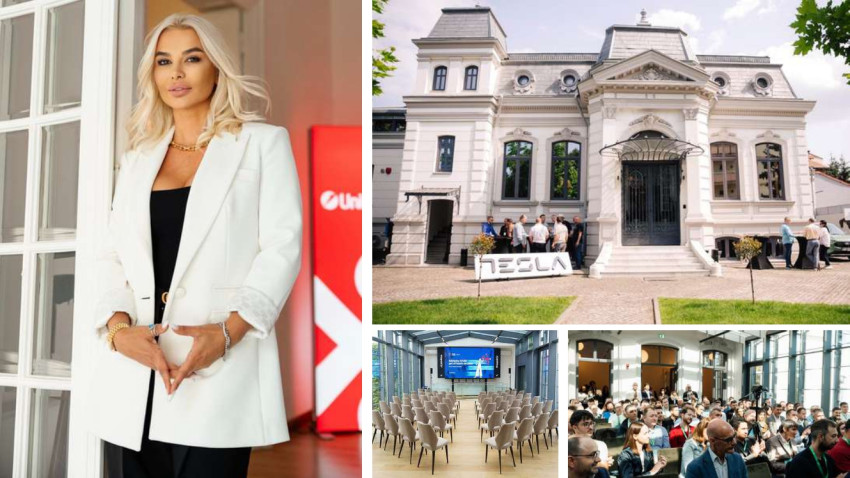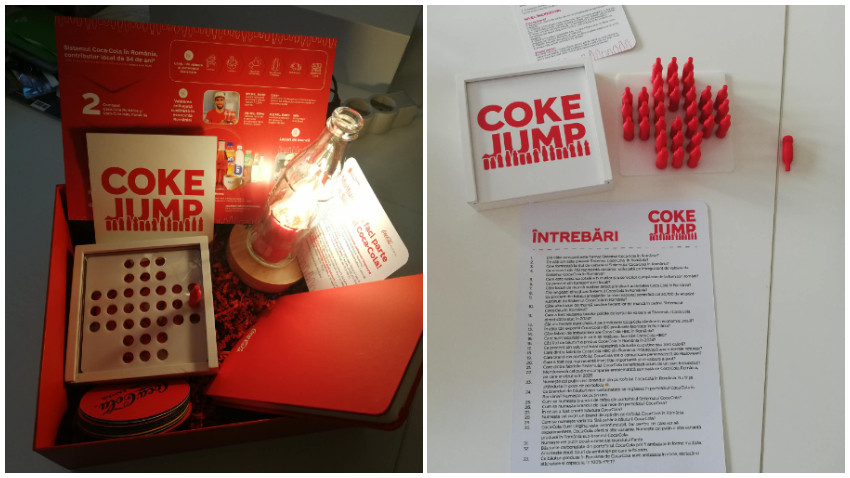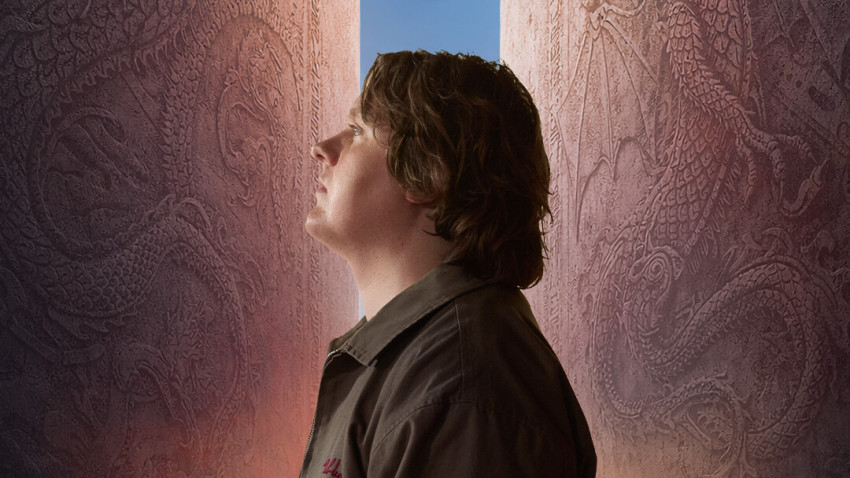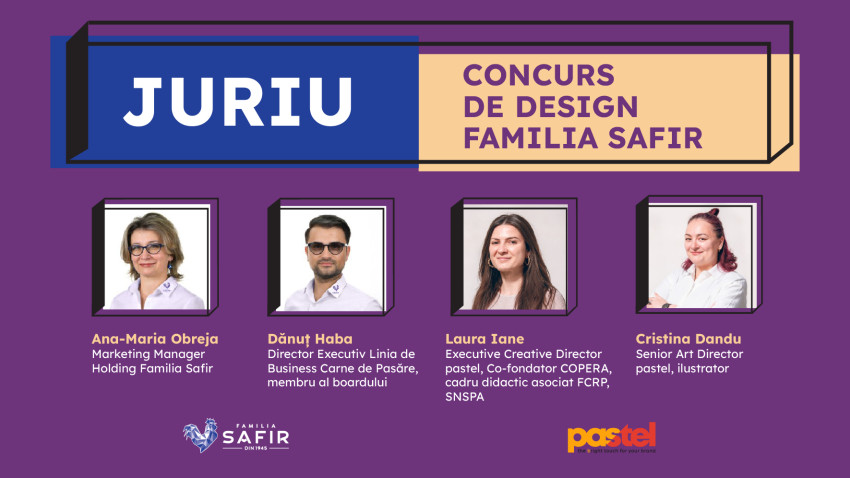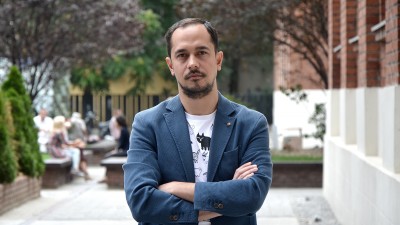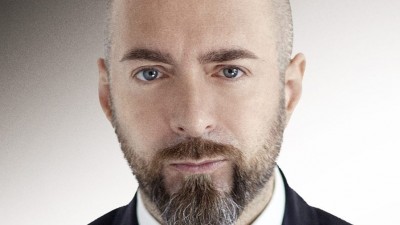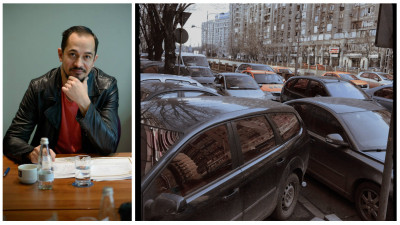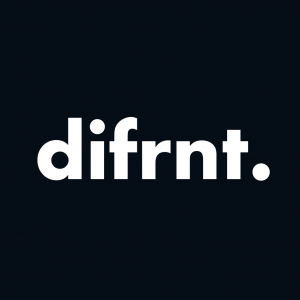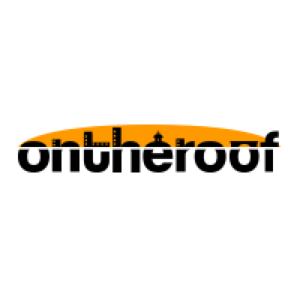We could consider "bubble" word of the year 2018 in Romania. And the interesting thing is the bubble doesn't appear just over here, we see it in the news every day. So here's a Slovenian perspective: "Living in a bubble has become the new reality", according to Janez Rakušček, Executive Creative Director Luna\TBWA Slovenia.
How do we leave the bubble? With courage, Janez considers, but not courage for the sake of courage or meaningless challenge.
Janez studied playwrighting at the Ljubljana Academy of Theater, Radio, Film and Television, and during university, had a midnight interview, in a bar. That's how his advertising adventure began. He started working in a small agency, continued at Studio Marketing JWT and then went back to the first agency, that in the mean time became Luna\TBWA.
We continue to explore advertising in neighboring countries and we discuss with Janez about the bubble, courage, what the industry looked like in 1970 Slovenia, what has changed in advertising and what remained the same, where the competition is in communication and about hamsters that hold little burritos in their paws.
Versiunea în română a interviului aici.
Your start in advertising
I started working in advertising immediately after finishing studies of dramaturgy at the Academy of Theater, Radio, Film, and Television in Ljubljana. Ads already interested me when I was in high school, I made short films and ads for imaginary products with my father's video camera.
At the university, I was very involved in writing scenarios and dramatic texts, and many of my older colleagues from the university had already dealt with advertisements professionally. One of them, a director, once invited me to work with him, and so I began the career path that I am still on today. We had an interview in a bar in the center of Ljubljana, at midnight. And it went great.
I began to work in a smaller agency and after three years moved to a bigger one. Studio Marketing JWT, where I moved to, was the first agency in Slovenia. It was founded in 1973 and was an informal marketing school with many people who later set up their own agencies or became prominent within the marketing profession.
In 2001 I returned to my first agency, which in the meantime became Luna\TBWA after the \TBWA global network acquired a majority stake in Luna. Now I work as executive creative director and Chief Creative Officer. And of course, I work as a copywriter too, as this is my basic profession which I still love the most.
Significant changes in the industry
Twenty-five years ago, on the one hand, advertising was quite different, and on the other hand, it was exactly the same as today. The idea is still in the center, as it was before. A surprising, memorable and relevant idea is the core of any effective communication, but of course, the modes and channels through which the idea materializes, as well as the contexts within which it resonates, have changed.
Society is changing, values are changing, and social sensitivity is different too. But what makes us human is the same. We still feel and understand the world through stories - narratives paint and explain the society and our place in it. Adapting to changes is actually easy, only one thing is needed: curiosity. If I had to give an advice to a person with a creative career in one sentence, I would say "Stay curious, my friend".
Slovenia is a former socialist country, which gained independence and formally entered capitalism in 1991. But even before 1991 it was already strongly connected to the West, as Slovenian companies exported their products to western countries and Slovenes often traveled to Austria and Italy; both countries are less than an hour's drive away from Ljubljana.
We could watch Italian and Austrian television programs, so the transition to capitalism did not seem to be a major disruption. The first advertising agency with a marketing approach started operating in the 1970s, and more were created in the 80s. Some have remained independent, some have been acquired by global advertising networks and some - like Luna\TBWA - in addition to Slovenia operate in other countries of the former Yugoslavia too.
The local flavour
We sometimes develop communication campaigns only for Slovenia, and more and more of them are created for the entire region (both for domestic and international clients). It is therefore difficult to talk about the specifics of the Slovenian communication expression: there is not such an expressive advertising language in Slovenia as it can be found in Scandinavia or South America, for example.
In addition, Slovenia is a small country with a population of two million, which blurs the edges of the advertising campaigns, as the target groups are wide and cover different strata of people, and that requires general attraction rather than an outstanding incidence.
Global and local
In the modern communication environment, we had to redefine the concept of competition. Competition is no longer just companies that operate in a similar business sector and talking to a similar audience. Due to technological disruptions competition can also come from completely different industries, and in terms of attention, the competition of advertising messages is, in fact, everything that is happening in our culture.
Our audience is confronted every day with a multitude of impulses fighting for its attention, and in the communication sense, the competition of a beer ad is also a video of a hamster holding a small burrito in his little paws. For connected individuals, the world is truly global and uniform.
But there is a problem: there are many more such worlds and with a less and less overlap. As cultural paradigms that define society as a whole, disappear, they are replaced by partial cultural axes, which have less and less in common. Try to get a leftist and a rightist into a discussion and the dialogue will be over soon. Try to get a player of World of Warcraft and a fan of Breaking Bad to talk and they will have nothing to talk about. These problems are of course universal, all who create advertising messages have to face them since living in the bubble has become a new reality.
The answer to the problem is, of course, simple and at the same time extremely complex: creatives need to create content that people want to watch, content that attracts attention and triggers conversations. There is a need for courage and firm position, the two concepts, which in my opinion are inextricably linked. We often listen to the phrase that good advertising requires courage - but for what? Because of the courage itself? Because of the provocation? No. Courage is needed for keeping the perspective of what is right and wrong - and what kind of opinion we have about the world in which we live and how we would like to change it.
Brands can no longer ignore the context in which they exist, as the public understands them in such a way, as well. In an infinitely connected, complex and relatively wealthy world, you can’t say that you exist only to make the laundry whiter. This is simply not enough (and at the same time it also means a path to oblivion).
Local burdens in communication
This is precisely one of the problems that the advertising industry in Slovenia is facing. The commitment to a wide approval often means just to surrender to mediocrity, and the avoidance of conflicts induced by firm attitudes causes an oblivion in the "world of beautiful images".
Naturally, there are of course outstanding communication campaigns in Slovenia. But if our country was judged by the average ad block, it would give the impression that we are in a clean, green, safe, regulated and relatively wealthy country that does not like anything which strays from the average. Yeah, of course, the observer could not by any means ignore the fact that in Slovenia practically everything can be bought with an attractive, incredible, exclusive, “just – today” discount.
In fact, all this is true. Slovenia has an extremely preserved nature and is one of the safest countries in the world, the legislation is European (as it must be), GDP per capita is approaching the European average (and is higher than for example that of Portugal). Advertising discount offers is probably something that no one can avoid.
I have met many colleagues from other countries, sometimes at the \TBWA network meetings or at the Art Director's Club Europe Board of Directors, and I have also participated in many juries of international festivals from Spain, Ukraine, Georgia to South Korea and Singapore, and every conversation with them confirmed that we all face the same problems. Sometimes we didn’t have to finish our sentences as all the interlocutors simply knew the continuation from their own experience.
I also met with Romanian creatives several times, for example with Adrian Botan, Eugen Suman, Claudiu Jojatu, Anca Bacila and Valentin Suciu and I am happy to say that I respect and admire Romanian creative achievements very much. The examples I have seen are outstanding, original and full of creative energy that isn’t scared of the impossible things. Congrats, guys.
How does technology influence the creative product
In terms of media consumption and, consequently, investments, Slovenia is a fairly conservative environment. Most of the media budgets measured are invested in TV, which is also understandable in terms of the size of the country. With the use of television advertising, it is possible to capture broad target audiences with relatively low costs.
Of course, digital advertising is developing as well, much like in the rest of the world it’s moving to the mobile platforms. The use of social networks, influencers, and content marketing is a part of every major communication campaign, and the use of modern communication possibilities offered by technologies of augmented and virtual reality is becoming more and more frequent.
But we can go even further: in Luna\TBWA we are actively promoting “the maker's mentality”, a principle that combines technology and practicality: if we do not find suitable technological solutions, we try to produce it ourselves. Oftentimes this includes soldering, electronic circuits, and screwdrivers - everything that needs to be done to jumpstart something that has not worked before. Technology gives us a lot, but it takes a lot too (I prefer not to fall into the problems of privacy, manipulation and psychological pressure that the individual feels when looking at ideal lives on social networks).
Local campaigns illustrative to your country
I saved the most difficult task for last - the selection of three examples of Slovenian advertising. I chose the Start Slovenia campaign from Formitas, Bedtime Storytellers from Grey Ljubljana and Lasko Duel from Luna\TBWA. You can view the case movies on the following links.
Bedtime Storytellers
Start Slovenija
Lasko Duel


![[Adland neighbours] Janez Rakušček (Luna\TBWA Slovenia): It takes courage to keep what is right and wrong in perspective; what opinions we have about the world and how we'd like to change it](https://media.iqads.ro/2018/08/img-41391-cover-850.jpg?v=201808201153)
